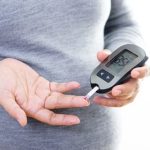Introduction
One of the earliest signs of pregnancy is a missed period. During early pregnancy, some women experience changes in their menstrual cycle, such as a delayed or lighter than normal period. However, this does not always signify that a woman is pregnant and other factors could be at play. Other physical signs of early pregnancy include tender breasts, fatigue, and nausea or “morning sickness”. These signs may occur very shortly after conception or can be delayed by a few weeks.
Aside from physical symptoms, emotional and psychological changes can also indicate early pregnancy. Some women may notice mood swings or emotional sensitivity similar to premenstrual syndrome (PMS) during the first few weeks of pregnancy. They may have feelings of sadness or joy which do not correlate to any particular event. Changes in appetite, cravings for certain foods, and aversions to certain smells are also common indicators of an impending pregnancy.
In addition to these signs which manifest themselves (either physically or psychologically) shortly after conception occurs, there are various medical tests available to further confirm a woman’s suspected pregnancy. A blood test can detect hCG levels in the body as early as one week after fertilisation has occurred, while an ultrasound scan done after around 6 weeks can confirm whether a foetus exists in the uterus.
Subtle Physical Changes to Watch For
Early signs of pregnancy can begin in the first few weeks of conception, though they may not be noticeable. Common physical changes to watch for include nausea and vomiting, tender breasts, frequent urination, fatigue, and food cravings. Many women experience mood swings due to a surge of hormones during early pregnancy. Some develop an aversion to certain smells or foods that were once pleasant. Women can also notice a change in their basal body temperature as this will remain high past ovulation. Other physical symptoms include constipation, backaches and headaches, and increased vaginal discharge. As the pregnancy progresses other physical changes can occur such as weight gain and abdominal growth due to the baby’s development.
Identifying Early Emotional & Mental Symptoms
The earliest signs of pregnancy may not be physical, but emotional and mental. It is common for women to experience heightened emotions and mood swings during the first several weeks of pregnancy. Women who are expecting may have fluctuations in their energy level, trouble sleeping or concentrating, and loss of appetite or cravings for certain foods. These symptoms may begin very soon after conception—just a few days after the sperm fertilizes the egg—but they can take up to three weeks to appear along with the classic morning sickness. As hormones surge through the body during pregnancy, other signs like bloating, breast tenderness, fatigue, dizziness, cramps and even joint pain may start appearing as early as now.
Reasons Why Your Body May Display Early Pregnancy Signs
The signs and symptoms of pregnancy can begin to manifest within days of conception for some women, but for others those sign may not show up until weeks later. This can be largely attributed to individual factors like hormones and the sensitivity of a woman’s body to those changes. It is normal for women to experience subtle differences in their body before missing their period; one way these signs can vary is in severity or intensity. Of course, as a general rule, the closer it is to your missed period, the more confident you can be that what you are experiencing are early signs of pregnancy.
One of the most common reasons why your body may display early pregnancy symptoms is due to the large hormonal changes taking place in order to support the growth and development of your baby. When using hormones as an indicator, increased levels of estrogen and progesterone will tell your body that there is a fetus growing inside you – this hormone increase produces many physical changes such as morning sickness, intense fatigue, sore breasts and even emotional outbursts due to extreme hormonal fluctuation. All these indicators instruct your uterus on how it should prepare for labor and delivery; meaning that your body already knows you’re pregnant long before you do! Other early signs might include frequent urination (which will usually intensify after 12 weeks with more pressure being exerted on bladder), heightened sense of smell, food cravings and aversions, unexplained dizziness or lightheadedness and tenderness or swelling around nipples.
How Reliable Are Early Pregnancy Indicators?
It is possible to experience early signs of pregnancy within a few days of conception, though these signs can be very subtle and unreliable. Some common symptoms of early pregnancy include nausea, tender breasts, fatigue, mood swings and increased sensitivity to smell. Many women also report frequent urination and constipation as they adjust to the hormonal changes brought on by pregnancy. However, since many symptoms could also be caused by other illnesses or related events, it is important to note that these signs may not necessarily indicate pregnancy and are not always reliable indicators for potential mothers. If you believe you might be pregnant, it is recommended that you consult a medical professional for more conclusive evidence.
Taking Action Upon Suspecting That You’re Early On in Pregnancy
Once you start suspecting that you might be pregnant and have taken an at-home pregnancy test, it’s important to take action right away. Make sure you get in touch with your doctor or healthcare provider as soon as possible so they can do a blood or urine test to confirm the pregnancy. Your healthcare provider will then review your general health and create a plan for prenatal care. The earlier they can provide care, the better prepared you will be for the birth of your baby, so don’t hesitate to contact them when you first suspect that you are pregnant. Additionally, if there are any lifestyle factors that may have influenced your pregnancy such as drinking alcohol or smoking cigarettes, it is important for you to inform your healthcare provider of this early on in order for them to help support you during the remaining nine months. Taking action early will also give your doctor the opportunity to perform ultrasounds throughout the remainder of your pregnancy so that both you and your baby can remain safe and healthy until full term.
Final Thoughts
Early signs of pregnancy can be difficult to identify as they are quite subtle and may not be obviously noticeable for the first few weeks. However, there are certain clues that can give an indication that a woman is pregnant. One of the earliest signs of pregnancy is a missed period, which should always prompt further investigation. A missed period on its own doesn’t necessarily mean pregnancy, however it can be a strong clue if other symptoms arise as well. Additional early indicators of pregnancy include tender breasts, fatigue and nausea, though some women do not experience any early symptoms at all.
There are various home-testing kits available to determine whether or not a woman is pregnant before she misses her first period. These tests check for human chorionic gonadotropin (hCG) in urine, which increases dramatically during pregnancy and serves as an indicator that a woman is pregnant. The results from these tests usually appear with great accuracy in just several minutes after use, however false positives or negatives can occur so further testing by a doctor should always be done to confirm the diagnosis.
In addition to over-the-counter tests, other laboratory processes used in hospitals involve taking a blood sample; this test measures hCG levels precisely and also has very accurate results. Ultrasound exams are also useful for detecting pregnancies earlier than any other method; frequencies sound waves generate images shown on a monitor that allow doctor’s to detect fetal hearts inside their patient within 4-6 weeks gestation age. It is important to remember that all of these at home tests and examinations serve only as indications of possible pregnancies – once again professional medical assistance should always be sought out for definitive diagnosis recent exposure to potential causes of miscarriage or ectopic pregnancies should not be overlooked either due pf its potentially serious implications if left untreated. All in all early signs of pregnancy vary drastically depending on individual factors – but with vigilant monitoring both before and after diagnoses one can stay healthier and safer during every stage of fetal brewing!

Welcome to my fertility blog. This is a space where I will be sharing my experiences as I navigate through the world of fertility treatments, as well as provide information and resources about fertility and pregnancy.





